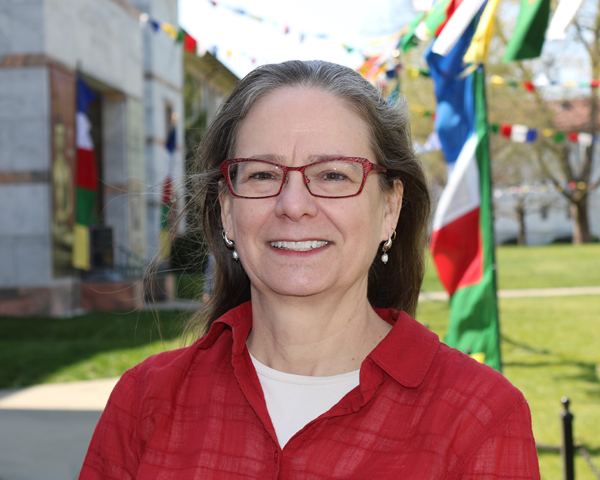
Next week, Ann Frellsen will be leaving Emory after nearly 27 years in the Libraries’ Preservation Office located in the Woodruff Library. The following is a discussion about her time at Emory.
Q: What are some of the highlights of your 27 years of preservation?
A: When I started, Emory was not doing any preservation work on rare collections, so we began creating protective enclosures. Now when you walk through the stacks of special collections, you see our custom-fitted boxes everywhere. Most are handmade so we increased the number of our staff and students that work in the lab and and provided training to raise their skill levels. I’ve had several students go on to careers in conservation, including Kirsten Wehner and Julie Newton. It’s very gratifying to me.
Q: What got you into conservation?
A: I have an undergrad degree in studio arts from LSU which gave me skills in handling many types of media. When I was in graduate school for sculpture at the Rochester Institute of Technology, I worked for a company called Light Impressions managing a frame retail outlet and creating high-end framing. I learned the basics of preservation there, especially with photographic materials. My first boss at Emory, Debra McKern, gave me a solid foundation as a bench-trained book and paper conservator.
Q: Has your Emory work has been very rewarding?
A: Oh yes. Emory has supported my career in many ways, through encouraging professional memberships, participation in collaborative regional disaster planning partnerships, and getting more training. They even sent me to Italy to learn 16th-century binding so that I would understand how to preserve the books in the Theology library. By understanding how the books are made, I can better put them back together again.
Q: How does your work differ from the work in the LSC?
A: They are a state-of-the-art storage environment and we worked closely with everyone involved (planners, contractors, employees) to make sure they understood best practices for preservation storage. My job is about protecting collections in use – whether it’s being alert for pests or leaks in the buildings, problems our patrons bring back to the library when they borrow materials, monitoring issues arising from exhibition (ex. too much light), or how people use our materials.
Q: Tell us more about your job.

A: I love conservation, and I want to make sure other people know about it. I’m told my enthusiasm infuses into others when I talk about my work or the collections we hold. We’ve grown and added several positions over the years. I think Emory was the first university to hire someone full-time to do A/V preservation. Emory’s Libraries, in general, hold nearly every media format that has ever been invented to share words, from cuneiforms, to wax cylinders, scrolls, photographs, modern media recordings, to born-digital files.
Q: What is next for you?
A: I intend to open a private conservation practice. I will also continue my role as a national cultural heritage emergency responder, as I’m an active member of the National Heritage Responders of the American Institute for Conservation, the Southeast Regional Conservation Association and Heritage Emergency Response Alliance-Atlanta; through these organizations we respond to calls for assistance in helping recover collections damaged by disasters, whether hurricane, fire, or vandalism. I will also be teaching book binding and various aspects of book arts.
Q: What has compelled the move to this next phase in your life?
A: I want to be an artist when I grow up. I really feel life is short, and I want to do more art. I have a small business of making miniature book earrings. I sell them at galleries in South Carolina, Colorado, and here in Georgia. I also have a studio (Little Tree) in Avondale Estates, GA. Inspired by Emory’s collection of artist’s books – books made by artists as art – I feel the need to make my own. I think of a book as a sculptural vessel, holding some form of communication.
Q: Any other thoughts about your time here?
A: I do not have a single regret about my time at Emory. I never imagined I would be here for 27 years. Every day has been different, and I feel like I am really lucky to be one of those people who can say that I love my job.
Leave a Reply